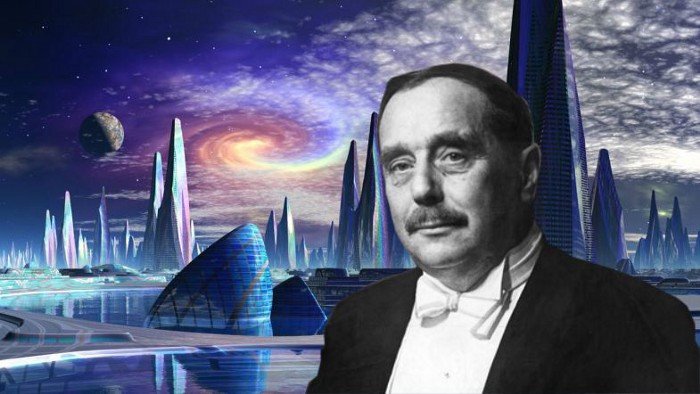The novelist who caused the greatest chaos in American history: Who is H. G. Wells?
H. G. Wells is an author who made a great contribution to the development and popularization of the science fiction genre. His works are still among the works that are read and valued today. So how did chaos occur? Here is his story:

Herbert George Wells, (1866-1946) was born in Bromley, Kent. After a few "false starts" in life, including a two-year apprenticeship in a draper's shop, he won a scholarship to the Normal Science School in South Kensington.
Here he took biology lessons from T H Huxley. His teaching career, which he started after graduating in 1890, did not last long due to health problems. When he started to overcome the internal crisis he experienced in 1893, he started to write various articles and short stories and soon started to earn his living from journalism.
Herbert George Wells (21 September 1866 – 13 August 1946) was an English writer. Prolific in many genres, he wrote more than fifty novels and dozens of short stories. His non-fiction output included works of social commentary, politics, history, popular science, satire, biography, and autobiography. Wells' science fiction novels are so well regarded that he has been called the "father of science fiction".
His first novel, Time Machine, was published in 1895. This novel was followed by The Invisible Man in 1897, The War of the Worlds in 1898, The First Men in the Moon, Anticipations, Mankind in the Making, A Modern Utopia, and other scientific works in 1901.
His novel The War of the Worlds is an important work. This book is about the Martian attack on Earth and explains how the alien invasion affects humanity.
The greatest chaos in American history: Orson Welles Radio Broadcast
Neither a science fiction movie nor a joke... The text spoken by Orson Welles on the radio brought America to the brink of disaster.
The approximately 1-hour broadcast on CBS Radio in 1938 went down in history as a great example of black humor.
Americans, who thought that the radio drama they heard from Orson Welles' voice was real, created the first link in the tragicomic chain of events, bringing New York and New Jersey into conflict. Here is the story of that unforgettable misunderstanding...
Welles, who performed a radio drama for the Halloween special, chose the adaptation of Herbert George Wells's novel The War of the Worlds.
Listeners who did not listen to the broadcast from the beginning and turned on their radio to the news bulletin section were suddenly astonished.
Thinking that what they were listening to was a serious news bulletin, Americans took to the streets in great panic, thinking that the alien invasion was really happening.
Those who went out to buy food, those who set out to change states, priests who were called to duty for the confession ritual, those who preferred to commit suicide rather than be killed by aliens, and many more...
Those who set out hoping to survive had locked the streets, and those who wanted to know what was going on had locked the phones of the radio station.
Davidson Taylor, who had to stop the broadcast after receiving phone calls, announced that the texts on the radio did not reflect reality and that everything was a completely fictional scenario.
But it was too late. Those who wanted to save their lives had already left their homes, and the radio building was raided by the police.
At that time, when the news system was not as active as it is today because there was no internet, many people learned days later that radio broadcasting was just a simple theatre.
The process that took place until the truth was understood had a heavy toll. There was loss of life and property.
Listeners who suffered material and moral losses filed a lawsuit against the radio for compensation but to no avail. All cases were quickly resolved in favor of the radio.
In addition, adhering to the Dickens tradition, he published The Wheels of Chance, Love and Mr. in 1900. Lewisham, Kipps in 1905, Tono-Bungay in 1909, and The History of Mr. He also wrote novels like Polly.
He wrote novels, short stories, science fiction, and biographical and historical writings until his death. Experiment in Autobiography, written in 1934, is an autobiographical work in which he reviews his life, works, and thoughts.
------------------------------
Utopian Pessimist
https://www.newyorker.com/magazine/2011/10/17/utopian-pessimist
